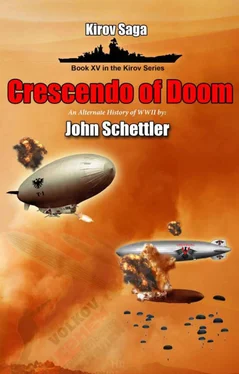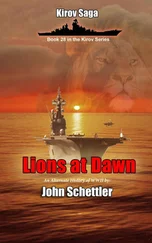“A night parachute landing northeast of the airfield—what a nightmare. Have a look at this map! There are hills there. We’ll have to land well beyond those, and well away from the river. The last thing I need is to have half my men in the water and marshes. It will take us an hour to find the men in the dark and get organized. In the meantime, god only knows what the British will be doing. They had the pluck to mount this very same operation last night, and they’ve taken the airfield.”
“Then they’ll have men on those hills as well,” said Feldmann. “They overlook the airfield and town. You’ll have to take them as your first objectives.”
“I don’t like it,” Ramcke shook his head. “We’ll have until dawn to secure the place, but we don’t know what we’re up against.”
“It cannot be much,” Feldmann reassured him. “My Brandenburgers would be more than a match for any commandos the British may have sent there. Your battalion is just along for the ride!” His smile conveyed his confidence, but Ramcke was not so certain.
The drone of the JU-52 was little solace as the planes flew north in the dark. All the men were busy getting into their parachute harnesses, and stuffing weapons and equipment into landing canisters. Ramcke watched them, undaunted by the fact that this was a retreat, and already seeing it as a new attack on just another objective.
“You there, Sergeant,” he said watching the men with the canisters. “No rifles there—every man is to carry his own weapon. Use the canisters only for the machineguns, mortars and ammunition. I want the men ready to fight as soon as they hit the ground. Understood?”
He had learned a few things from the action on Malta and Cyprus. It had been German doctrine to drop all weapons in canisters, which left the men with only their sidearm when they hit the ground. That wasn’t going to happen this time. He knew the remainder of the 65th Luftland Regiment, and the other two companies of his battalion, would be moving all night, but did not expect they would reach the town until well after dawn given the condition of the roads.
At least we managed to slip away without the British realizing what we were up to, he thought. They damn near caught the whole of the 65th Regiment in a nice little cauldron. We might have held, but for how long? I’ve little in the way of artillery here, and only a few mortars and recoilless rifles for heavy weapons. This whole operation was mounted with too much haste and too little thought.
“Don’t worry,” said Feldmann. “I had men through that town some months ago. The whole place sits north of the river. There are escarpments to the south, and that terrain will be all but impassible for the British lorries. See here…” He fingered the map to indicate a position southeast of the town along the river. “See how the river bends close to the escarpments? The flood plain narrows there, and that will make a nice bottleneck for the boys from the 65th Regiment to hold up the British. This place is very defensible.”
“I suppose so, after we take it. Remember the British are there now. I thought the French had left a garrison, but they pulled all those troops south towards Damascus when they heard we were coming. And I’ll say another thing,” Ramcke shook his head. “Things aren’t all rosy to the south either! Have you heard what happened to 9th Panzer Division?”
“I read the reports. I’m Abwehr.”
“Yes? Well what was in your reports about these new British tanks? They went right through our boys, and Rommel got the same treatment a month ago in North Africa.”
“A new tank,” said Feldmann. “I’ll admit we knew nothing about it, and I’m told it is considerably bigger than their old Matildas. But don’t expect any here, Ramcke. Wolff held off the British at Palmyra easily enough, and you can do the same.”
“Wolff had the entire 16th Regiment come up behind him as a timely reinforcement,” said Ramcke. “Those were the troops that actually got the job done in Holland, so it’s no wonder the British left us Palmyra.”
“And your boys were the troops that got the job done at Malta and Cyprus. Why the long face, Herr Oberst? Remember—the 7th Machinegun Battalion is also coming up from Homs through Aleppo. In fact, they might be very near the town now. You have the leading edge of Sturm-Regiment One here. Lightning at the edge of the storm! This will be no problem, I assure you.”
Yes, it all sounded good on paper, Ramcke thought, and the map, sketchy as it was, did show favorable terrain for the defense once they had control of the town. After all, how many commandos could the British have there? Feldmann was probably correct. Yet something in his belly remained unsettled that night, an uncomfortable feeling as the amber lights winked on in the long cabin, indicating the planes were nearing their planned dropping point.
“Ten minute warning,” said Feldmann. “I have just one section of my Brandenburgers here. The rest are on plane nine. May I have the honor of taking my men out first, Herr Oberst?”
“The honor? It’s all yours Feldmann. I didn’t know these were your men, but they can act as pathfinders.”
It was then that they heard it, a dull explosion far ahead, and bright light flashed in the sky. Feldmann pressed his head against the side window, trying to see what was going on. “We’re under attack!” He shouted, then was quickly up with a terse hand signal to his Brandenburgers.
Ramcke looked and saw that one of the lead transports had been hit, and was already falling from the sky, its wing blazing with fire, men already leaping from the fuselage for their lives. How had the British discovered them like this in the dark? Could it be they moved fighters into the airfield at Raqqah for this very reason? He knew he now had only seconds to get his men to safety.
“Everyone up! Make ready to jump!
He saw the gunner on the MG-15 machinegun, its black barrel pointed out one of the open square windows looking for targets, but seeing nothing to fire at. Then the sky lit up with another explosion, and this time Ramcke saw what was happening. Something was in the sky, moving like a sleek shadow and then disappearing into a cloud. It was unlike anything he had seen, and it had fired a searing rocket at the formation. Another plane had been struck, its right wing engine blown off and the wing itself careening away as the plane tipped over and fell.
“Come on!” he shouted. “Jump! Jump for your lives!”
The cabin light dimmed to deep red, indicating that they had just reached the edge of the intended drop zone. Then the wild moment came. The doors were slid open, and one by one the men darkened the portal with their bulk, tall, strong soldiers, young and proud. Out they went, jumping as if they were leaping from a sinking ship. As each man went, he fell into the chaos of the scene outside.
Feldmann was first out, just as he had wished. Behind him went the five black uniformed Brandenburgers, then the men of Ramcke’s HQ squad. His company was going to be scattered all over the desert below, those that survived. There were 18 men on each of the nine planes, and he had already seen two go down in flaming wrecks.
The men pushed forward, the urgency of the moment moving them on. Out they went, falling like leaves on the wind of a storm, into the black Syrian night. Ramcke reached the door, saw the chaotic scene framed there, then literally cast his fate to the wind in a tumultuous, harrowing fall.
You’re too old for this Hermann, he told himself, a man of 52 years in 1941. He had only just completed his parachute qualification course the previous year when he joined Student’s troops. Tonight he was supposed to make a nice bumpy landing on the desert somewhere, not go plummeting into the dark of a night air action. Then he felt the stiff jolt as his parachute deployed, his breath coming hard, and a moment of exhilaration. His life now hung by those long cords, buoyed by the fluttering chute, drifting on the wind.
Читать дальше












